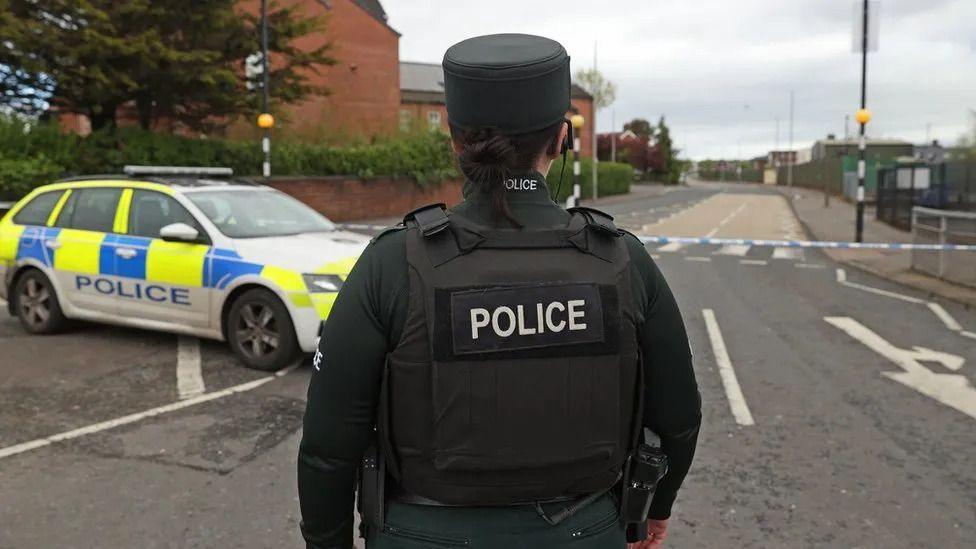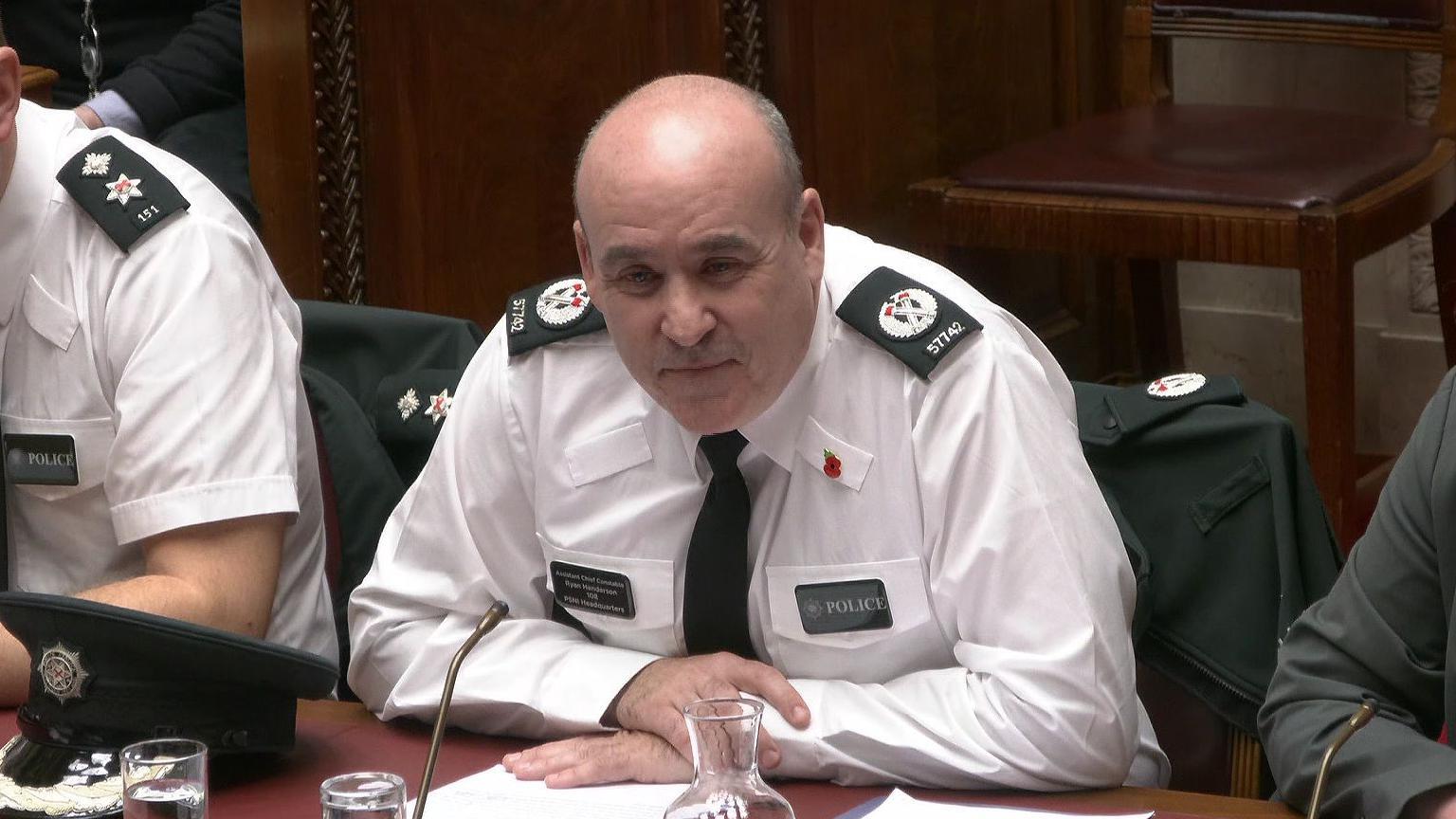Frontline officers 'overwhelmed by mental health incidents'

Almost 40,000 calls about a person potentially in danger were received by the PSNI in the past year - with just 3% of those related to crime
- Published
Frontline police officers have become overwhelmed by the number of mental health incidents they are having to deal with on a daily basis, according to a senior officer.
Assistant Chief Constable Ryan Henderson told a Stormont committee that the number of contacts had reached "unprecedented levels".
Almost 40,000 calls about a person potentially in danger were received by the PSNI in the past year - with just 3% of those related to crime.
Mr Henderson said society was "criminalising mental health" by having police officers deal with vulnerable people in crisis.

Assistant Chief Constable Ryan Henderson said society was "criminalising mental health"
The public would be "shocked and surprised at just the sheer scale and amount of time" the PSNI was spending on what they may not consider to be police work, said Mr Henderson.
"The police service have become the emergency service of first resort for mental health crises in Northern Ireland.
"If you talk to our call handlers or our frontline officers, they would give you a very real insight into how overwhelming that has become in terms of volume," he said.
"For those of us who are involved in this work would know, that would not be a surprise, as Northern Ireland is acknowledged to suffer higher rates of common mental health problems, higher rates of psychosis, higher rates of addiction than similar sized populations."
'Not right for members of the public who are in a health crisis'
Mr Henderson said the police were dealing with an average of 107 mental health incidents per day and estimated that more than 100,000 hours of police time were spent on these every year.
That amounted to around £4m a year, he told MLAs.
"This is not right for those members of the public who are in a health crisis."
"I don't think there is anyone who thinks that having a police officer with their gun, their stab proof vest, their handcuffs should be the mental health support for someone in health crisis for significant periods of time."
Mr Henderson said the high volume of calls meant less policing at a time of significant financial pressure and the lowest number of officers since the PSNI came into existence.
"It feels that the threats to our community are becoming ever more challenging - four women murdered in a six-week period since August at the hands of men, race hate riots in the summer, the awful (Alexander) McCartney catfish case, the continued shadow of paramilitarism and the criminal exploitation of young people.
"That is police work, that is protecting our communities from harm."